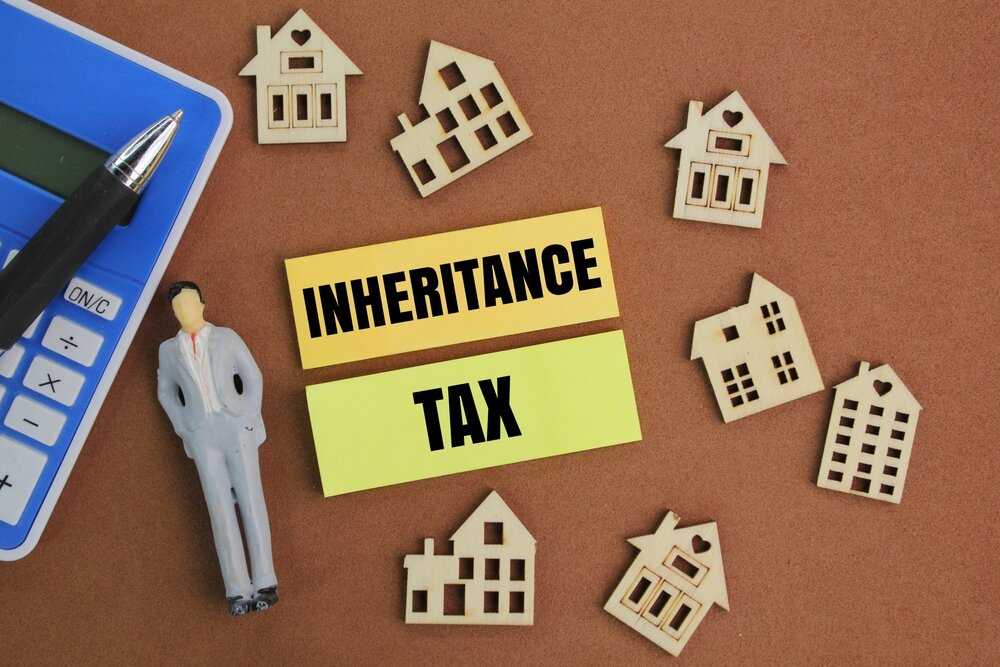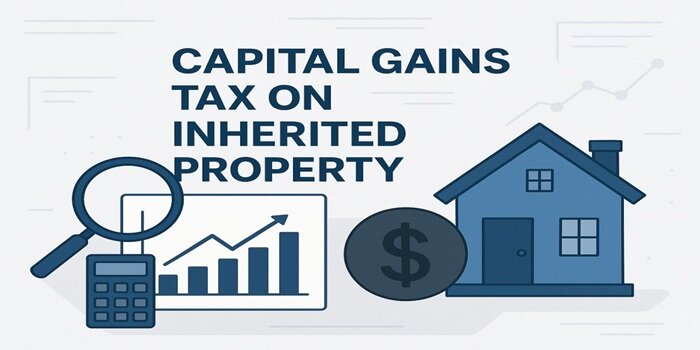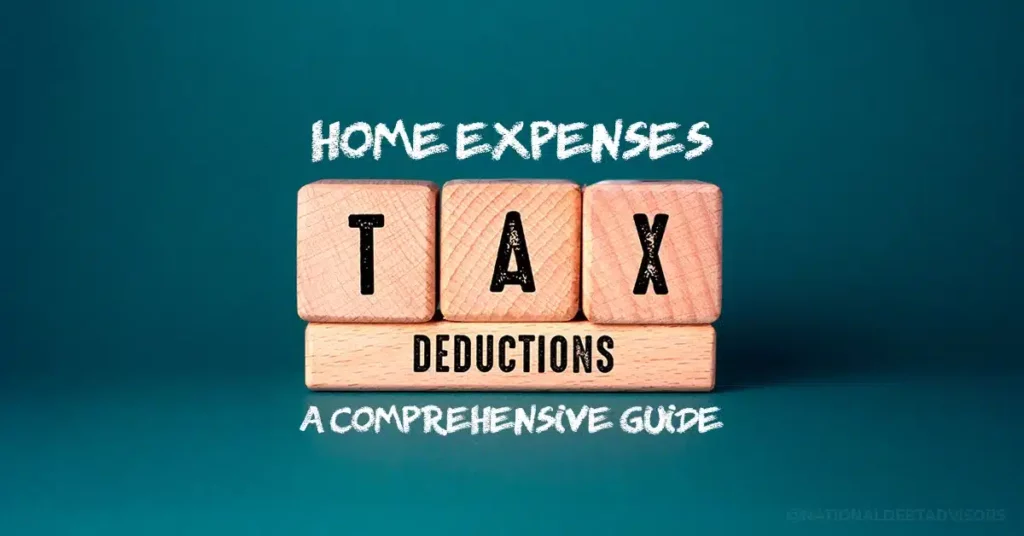Understanding Taxes When Selling an Inherited Property in Tampa, FL
Selling an inherited property in Tampa, FL, can be a daunting process, especially when it comes to taxes. Many property owners find themselves overwhelmed by the different tax obligations and the complexities of handling inherited assets. Understanding the tax implications of selling an inherited property is essential for minimizing your financial burden.

In this article, we will explore the various taxes associated with inherited property sales, how to calculate capital gains, and strategies to minimize taxes. We’ll also cover important Florida-specific tax laws, including the step-up in basis, and provide expert advice on how to make the most informed decisions when selling an inherited property.
As a content to our broader guide on selling inherited property fast in Tampa, this article will focus on tax-saving strategies and the most common pitfalls you should avoid to protect your financial interests.
Brief Overview: Why Taxes on Inherited Property Are a Concern When Selling in Tampa
When you inherit a property, it’s not just the emotional value of the home that you need to consider. Taxes on inherited properties can quickly become overwhelming if not carefully planned. In Tampa, Florida, there are several taxes that come into play when selling an inherited property, including capital gains tax, estate tax, property tax, and others.
It’s crucial to understand these taxes because they can significantly impact the financial outcome of the sale. The good news is that there are ways to minimize these taxes through careful planning and strategy.
Importance of Understanding Taxation: Inherited Property Taxes vs. Standard Property Sales Taxes
When selling an inherited property, there are significant differences between the taxes you’d face in a standard property sale. Inherited property tax laws are more complex because they involve different types of taxes, such as capital gains taxes, and special rules like the step-up in basis. For someone who inherits a property in Tampa, understanding these distinctions is key to reducing tax liability.
Understanding Inherited Property Taxes in Tampa, FL
What is Inherited Property?
Inherited property refers to any real estate or assets that you receive as part of an inheritance. Unlike properties you buy or sell, inherited properties come with their own set of tax rules and exemptions.
An inherited property is distinct from other types of real estate transactions because it doesn’t involve a typical purchase process. Instead, the property is transferred to you after the previous owner’s death, often as part of a will or trust.
Types of Taxes on Inherited Property
Inherited properties may be subject to several taxes:
- Inheritance Tax: Inheritance tax is levied by the state on the value of an inheritance received. However, Florida does not have an inheritance tax, which is advantageous for inheritors in the state.
- Capital Gains Tax: This tax is applied to the increase in value of the property between the time you inherit it and when you sell it. However, the rules for calculating capital gains on inherited property are different from regular sales.
- Estate Tax: Florida does not impose a state estate tax, but federal estate taxes may apply if the estate exceeds a certain value. The federal estate tax exemption is quite high, so it only affects a small percentage of estates.
- Property Tax (Maintenance, Arrears): After inheriting the property, you’ll be responsible for any ongoing property taxes. This includes any arrears the property may have accumulated. The tax burden increases if the property is not maintained properly.
Inherited Property Tax Laws in Florida
Is There Inheritance Tax in Florida?
Florida is one of the few states that does not impose an inheritance tax, meaning the beneficiaries do not face taxes for receiving an inherited property. This is a major benefit for those selling inherited properties in Florida, including Tampa.
However, while Florida does not tax the inheritance itself, there are still other tax responsibilities, such as property tax and capital gains tax, that need to be addressed when selling the inherited property. For more information on Florida’s property tax laws, refer to the Florida Department of Revenue’s Property Tax Guide.
Florida’s Property Tax Rules for Inherited Properties
In Florida, property taxes are based on the value of the property. When you inherit a property, you assume responsibility for the property taxes from the date of inheritance. These taxes can increase over time, especially if the property appreciates in value.
How Property Taxes Work for Inherited Homes:
Inherited properties may have unpaid property taxes. Before selling the home, it is important to ensure that all property taxes, including any arrears, are settled to avoid complications during the sale process.
Capital Gains Taxes on Inherited Properties in Florida
What is a Step-Up in Basis?
One of the most important rules when selling inherited property is the step-up in basis. In simple terms, this means that the value of the property for tax purposes is adjusted to its fair market value at the time of the decedent’s death. This reduces the amount of taxable capital gains when the property is sold.
For more detailed information about how the step‑up in basis works, visit the Internal Revenue Service’s official guide on Topic No. 703 – Basis of Assets.
How Capital Gains Are Calculated
Capital gains tax is calculated on the difference between the sale price of the property and its stepped-up basis. For example, if you inherit a property worth $300,000 at the time of death and sell it for $350,000, you’ll only pay capital gains tax on the $50,000 difference, not the entire $150,000 increase in value that might have occurred during the decedent’s lifetime.
How Capital Gains Are Calculated on Inherited Property in Tampa

Step-Up in Basis Explained
The step-up in basis is crucial in minimizing your tax liability when selling an inherited property. This rule ensures that you only pay taxes on the increase in property value that occurred after the property was transferred to you.
For example, if you inherit a property valued at $300,000 and sell it for $350,000, your taxable capital gain is $50,000, not $150,000. This can result in significant tax savings.
Case Study:
Let’s say you inherit a home valued at $300,000 and sell it for $350,000. Without the step-up in basis, you’d be taxed on the entire $150,000 increase in value. However, thanks to the step-up rule, you are only taxed on the $50,000 increase in value after the inheritance.
Exceptions and Special Considerations
- Special Cases for Property Sold Within a Year of Inheritance: If you sell the property within a year of inheriting it, you may still be eligible for capital gains tax treatment under the step-up in basis rule, but it’s important to verify with a tax advisor.
- Impact of Depreciation Deductions: If the inherited property has been depreciated, this could reduce the amount of gain that qualifies for the step-up in basis. The interaction of depreciation with the step-up rule can complicate the tax situation, requiring professional advice.
How to Minimize Taxes When Selling an Inherited Property
Wait to Sell and Use Step-Up in Basis
The best strategy for minimizing taxes is to wait until the property has appreciated in value, but sell it in a way that allows you to utilize the step-up in basis. Patience can often result in significant tax savings.
Primary Residence Exemption
Can inherited property qualify for the $250,000 (single) or $500,000 (married) capital gains exemption if it becomes your primary residence? Yes, in some cases, if you live in the inherited property for at least two years before selling it, you may qualify for these exemptions.
Selling the Property to a Cash Buyer
Selling quickly to a cash buyer offers the advantage of simplifying the sale process, which may help reduce some tax implications. Cash sales are typically faster, and you won’t incur agent commissions or repair costs, allowing you to keep more of the sale proceeds.
Renting Out the Property First
Renting out the inherited property first could allow you to take advantage of certain tax deductions related to property maintenance, depreciation, and other expenses. However, there are complications to consider, such as potential liability and the costs of upkeep.
Estate Planning Strategies to Minimize Taxes

Gifting Property Before Inheritance
Gifting property during your lifetime can reduce the potential inheritance tax burden. However, the recipient will inherit the property at your cost basis, which could lead to higher capital gains taxes when the property is eventually sold. For more information on gifting, you can check out this guide on gift taxes.
Using a Living Trust
A living trust allows you to transfer assets without the need for probate, and it can help minimize estate taxes, protecting the value of your property for heirs.
Setting Up an LLC or Family Trust
Setting up an LLC or family trust can provide additional tax advantages, allowing you to protect your assets and reduce tax liability. However, it’s important to consider both the legal and tax implications before going this route.
Common Mistakes to Avoid When Selling Inherited Property
- Not Understanding the Step-Up in Basis: Failing to understand this rule can lead to unnecessarily high taxes.
- Selling Too Quickly: Rushing the sale without considering tax implications can result in missed opportunities for tax savings.
- Not Consulting a Tax Professional: Consulting with a tax expert ensures that you understand your full tax obligations and avoid costly mistakes.
- Ignoring Maintenance Costs and Property Tax: Properly maintaining the property ensures that you avoid paying higher taxes due to neglect.
Should You Hire a Real Estate Agent or Sell Directly for Cash?
Pros and Cons of Hiring an Agent
While working with a real estate agent can offer convenience, it comes with extra costs (commission fees) and may result in a longer timeline. However, an agent may help you secure a higher sale price.
Selling for Cash: Why It May Be the Best Option
Selling for cash typically offers a faster, more streamlined process, potentially reducing your overall tax burden. Cash buyers are often more flexible and understanding of your situation.
Tax Deductions and Credits When Selling Inherited Property in Florida

Tax Deductions Related to Selling
- Maintenance Costs: Expenses for repairs or maintenance may be deductible.
- Property Taxes: Property taxes during ownership are deductible.
- Improvements: Costs for significant upgrades may reduce taxable gain.
Available Tax Credits for Inherited Property Sales
Florida doesn’t offer specific credits for inherited property sales, but you may be eligible for federal capital gains exemptions or credits if the property becomes your primary residence.
How to Report the Sale of Inherited Property on Your Taxes
IRS Forms You Need to File
- Schedule D: This form is used to report capital gains or losses from the sale of the property.
- Form 8949: This form provides detailed information about the sale, including dates and the adjusted basis of the property.
- Form 1040: The sale’s impact on your total taxable income is reported here.
Calculating Your Taxable Gain
To calculate your taxable gain, subtract the step-up in basis (the property’s value at the time of inheritance) from the sale price. For example, if the inherited property was valued at $300,000 and sold for $350,000, your taxable gain is $50,000.
Consulting a Tax Professional
Consulting with a tax expert is highly recommended to ensure that your tax reporting is accurate and that you take advantage of all available deductions or credits.
Next Steps: Explore Full Guide on Selling an Inherited House in Tampa
For a detailed guide on selling inherited properties fast in Tampa, visit our page on How to Sell an Inherited House Fast in Tampa, FL.
Capital Gains Tax Calculation Example
| Scenario | Value of Property | Selling Price | Step-Up in Basis | Taxable Gain |
|---|---|---|---|---|
| Inherited Property | $300,000 | $350,000 | $300,000 | $50,000 |
| Inherited Property (High Market) | $500,000 | $750,000 | $500,000 | $250,000 |
Steps for Selling Inherited Property
| Step | Action Required |
|---|---|
| 1 | Determine property value |
| 2 | Check for existing liens |
| 3 | Consult a tax professional |
| 4 | Decide if repairs or renovations are needed |
| 5 | Choose a selling strategy (cash buyer, agent, etc.) |
Frequently Asked Questions
1. What taxes do I need to pay when selling an inherited property in Tampa, FL?
This is a primary query for anyone selling an inherited property, and it’s crucial for targeting people who are researching the tax implications. It addresses the user’s main concern while incorporating key SEO terms like “selling inherited property” and “taxes in Tampa.”
2. How does the step-up in basis work for inherited property?
This is a core concept that many people need to understand when selling an inherited property, especially when it comes to capital gains tax. It’s highly searched by those unfamiliar with the process and a perfect target for AEO as AI frequently answers this question.
3. Is there inheritance tax in Florida for inherited property?
Since Florida is a no-inheritance-tax state, this question is directly relevant to people looking for clarity about tax rules in the state. This FAQ targets a specific regional query and is likely to rank well for local SEO.
4. How are capital gains taxes calculated on an inherited property in Tampa?
Understanding capital gains tax calculation is crucial for property sellers. This question ensures that users get precise, actionable insights, while AI models can easily extract and respond to the user’s query on capital gains taxes, making it AEO-friendly.
5. Can I avoid capital gains tax on inherited property in Florida?
People often look for ways to minimize or avoid taxes, making this question highly relevant. It focuses on tax-saving strategies, which is a critical search query for people trying to limit their tax burden when selling an inherited property in Florida.
Take Action to Minimize Taxes When Selling Inherited Property in Tampa
Understanding the tax implications when selling an inherited property in Tampa is crucial for protecting your financial future. By utilizing strategies like the step-up in basis, considering estate planning tools, or opting to sell directly to a cash buyer, you can reduce your tax liabilities and streamline the sale process.
At Tampa Fast Home Buyer, we specialize in buying inherited properties quickly and efficiently, offering cash deals with a simplified closing process. Our team is here to guide you through the tax implications and ensure you make the best-informed decisions.
If you’re ready to sell your inherited home in Tampa, contact Tampa Fast Home Buyer today. Let us help you navigate the process, reduce your tax burden, and close the deal fast.

